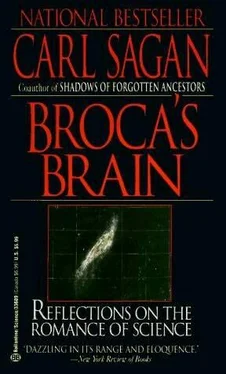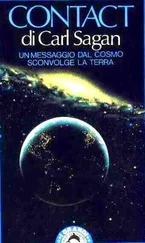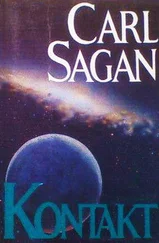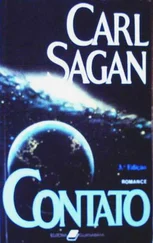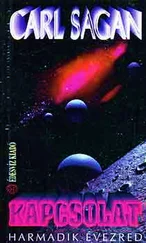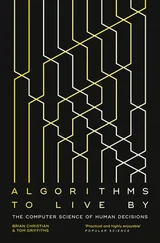Carl Sagan - Broca's Brain - The Romance of Science
Здесь есть возможность читать онлайн «Carl Sagan - Broca's Brain - The Romance of Science» весь текст электронной книги совершенно бесплатно (целиком полную версию без сокращений). В некоторых случаях можно слушать аудио, скачать через торрент в формате fb2 и присутствует краткое содержание. Жанр: Физика, на английском языке. Описание произведения, (предисловие) а так же отзывы посетителей доступны на портале библиотеки ЛибКат.
- Название:Broca's Brain: The Romance of Science
- Автор:
- Жанр:
- Год:неизвестен
- ISBN:нет данных
- Рейтинг книги:3 / 5. Голосов: 1
-
Избранное:Добавить в избранное
- Отзывы:
-
Ваша оценка:
- 60
- 1
- 2
- 3
- 4
- 5
Broca's Brain: The Romance of Science: краткое содержание, описание и аннотация
Предлагаем к чтению аннотацию, описание, краткое содержание или предисловие (зависит от того, что написал сам автор книги «Broca's Brain: The Romance of Science»). Если вы не нашли необходимую информацию о книге — напишите в комментариях, мы постараемся отыскать её.
Broca's Brain: The Romance of Science — читать онлайн бесплатно полную книгу (весь текст) целиком
Ниже представлен текст книги, разбитый по страницам. Система сохранения места последней прочитанной страницы, позволяет с удобством читать онлайн бесплатно книгу «Broca's Brain: The Romance of Science», без необходимости каждый раз заново искать на чём Вы остановились. Поставьте закладку, и сможете в любой момент перейти на страницу, на которой закончили чтение.
Интервал:
Закладка:
Andrew Dickson White was the intellectual guiding light, founder and first president of Cornell University. He was also the author of an extraordinary book called The Warfare of Science with Theology in Christendom , considered so scandalous at the time it was published that his co-author requested his name omitted. White was a man of substantial religious feeling. [17]But he outlined the long and painful history of erroneous claims which religions had made about the nature of the world, and how, when people directly investigated the nature of the world and discovered it to be different from doctrinal contentions, such people were persecuted and their ideas suppressed. The aged Galileo was threatened by the Catholic hierarchy with torture because he proclaimed the Earth to move. Spinoza was excommunicated by the Jewish hierarchy, and there is hardly an organized religion with a firm body of doctrine which has not at one time or another persecuted people for the crime of open inquiry. Cornell’s own devotion to free and non-sectarian inquiry was considered so objectionable in the last quarter of the nineteenth century that ministers advised high school graduates that it was better to receive no college education than to attend so impious an institution. Indeed, this Sage Chapel was constructed in part to placate the pious-although, I am glad to say, it has from time to time made serious efforts at open-minded ecumenicism.
Many of the controversies which White describes are about origins. It used to be believed that every event in the world-the opening of a morning glory, let us say-was due to direct microintervention by the Deity. The flower was unable to open by itself. God had to say, “Hey, flower, open.” The application of this idea to human affairs has often had desultory social consequences. For one thing it seems to imply that we are not responsible for our actions. If the play of the world is produced and directed by an omnipotent and omniscient God, does it not follow that every evil that is perpetrated is God’s doing? I know this idea is an embarrassment in the West, and attempts to avoid it include the contention that what seems to be evil is really part of the Divine Plan, too complex for us to fathom; or that God chose to cloud his own vision about the causality skein when he set out to make the world. There is nothing utterly impossible about these philosophical rescue attempts, but they do seem to have very much the character of propping up a teetering ontological structure. [18]In addition, the idea of microintervention in the affairs of the world has been used to support the established social, political and economic conventions. There was, for example, the idea of a “Divine Right of Kings,” seriously argued by philosophers such as Thomas Hobbes. If you had revolutionary thoughts directed, let us say, toward George III, you were guilty of blasphemy and impiety, religious crimes, as well as such more commonplace political crimes as treason.
There are many legitimate scientific issues relating to origins and ends: What is the origin of the human species? Where did plants and animals come from? How did life arise? the Earth, the planets, the Sun, the stars? Does the universe have an origin, and if so, what? And finally, a still more fundamental and exotic question, which many scientists would say is essentially untestable and therefore meaningless: Why are the laws of nature the way they are? The idea that a God or gods is necessary to effect one or more of these origins has been under repeated attack over the last few thousand years. Because we know something about phototropism and plant hormones, we can understand the opening of the morning glory independent of divine microintervention. It is the same for the entire skein of causality back to the origin of the universe. As we learn more and more about the universe, there seems less and less for God to do. Aristotle’s view was of God as an unmoved prime mover, a roi fainéant , a do-nothing king who establishes the universe in the first place and then sits back and watches the intricate, intertwined chains of causality course down through the ages. But this seems abstract and removed from everyday experience. It is a little unsettling and pricks at human conceits.
Humans seem to have a natural abhorrence of an infinite regression of causes, and this distaste is at the root of the most famous and most effective demonstrations of the existence of God by Aristotle and Thomas Aquinas. But these thinkers lived before the infinite series was a mathematical commonplace. If the differential and integral calculus or transfinite arithmetic had been invented in Greece in the fifth century B.C., and not subsequently suppressed, the history of religion in the West might have been very different-or at any rate we would have seen less of the pretension that theological doctrine can be convincingly demonstrated by rational argument to those who reject alleged divine revelation, as Aquinas attempted in the Summa Contra Gentiles.
When Newton explained the motion of the planets by the universal theory of gravitation, it no longer was necessary for angels to push and pummel the planets about. When Pierre Simon, the Marquis de Laplace, proposed to explain the origin of the solar system-although not the origin of matter-in terms of physical laws as well, even the necessity for a god involved in the origins of things seemed profoundly challenged. Laplace is said to have presented an edition of his seminal mathematical work Mécanique céleste to Napoleon aboard ship in the Mediterranean during the Napoleonic expedition to Egypt, 1798 to 1799. A few days later, so the story goes, Napoleon complained to Laplace that he had found no mention of God in the text. [19]Laplace’s response has been recorded: “Sire, I have no need of that hypothesis.” The idea of God as a hypothesis rather than as an obvious truth is by and large a modern idea in the West-although it was certainly discussed seriously and wryly by the Ionian philosophers of 2,400 years ago.
It is often considered that at least the origin of the universe requires a God-indeed, an Aristotelian idea. [20]This is a point worth looking at in a little more detail. First of all, it is perfectly possible that the universe is infinitely old and therefore requires no Creator. This is consistent with existing knowledge of cosmology, which permits an oscillating universe in which the events since the Big Bang are merely the latest incarnation in an infinite series of creations and destructions of the universe. But secondly, let us consider the idea of a universe created somehow from nothing by God. The question naturally arises-and many ten-year-olds spontaneously think of it before being discouraged by their elders-where does God come from? If we answer that God is infinitely old or present simultaneously in all epochs, we have solved nothing, except perhaps verbally. We have merely postponed by one step coming to grips with the problem. A universe that is infinitely old and a God that is infinitely old are, I think, equally deep mysteries. It is not readily apparent why one should be considered more reliably established than the other. Spinoza might have said that the two possibilities are not really different ideas at all.
I think it is wise, when coming face to face with such profound mysteries, to feel a little humility. The idea that scientists or theologians, with our present still puny understanding of this vast and awesome cosmos, can comprehend the origins of the universe is only a little less silly than the idea that Mesopotamian astronomers of 3,000 years ago-from whom the ancient Hebrews borrowed, during the Babylonian captivity, the cosmological accounts in the first chapter of Genesis-could have understood the origins of the universe. We simply do not know. The Hindu holy book, the Rig Veda (X:129), has a much more realistic view of the matter:
Читать дальшеИнтервал:
Закладка:
Похожие книги на «Broca's Brain: The Romance of Science»
Представляем Вашему вниманию похожие книги на «Broca's Brain: The Romance of Science» списком для выбора. Мы отобрали схожую по названию и смыслу литературу в надежде предоставить читателям больше вариантов отыскать новые, интересные, ещё непрочитанные произведения.
Обсуждение, отзывы о книге «Broca's Brain: The Romance of Science» и просто собственные мнения читателей. Оставьте ваши комментарии, напишите, что Вы думаете о произведении, его смысле или главных героях. Укажите что конкретно понравилось, а что нет, и почему Вы так считаете.
